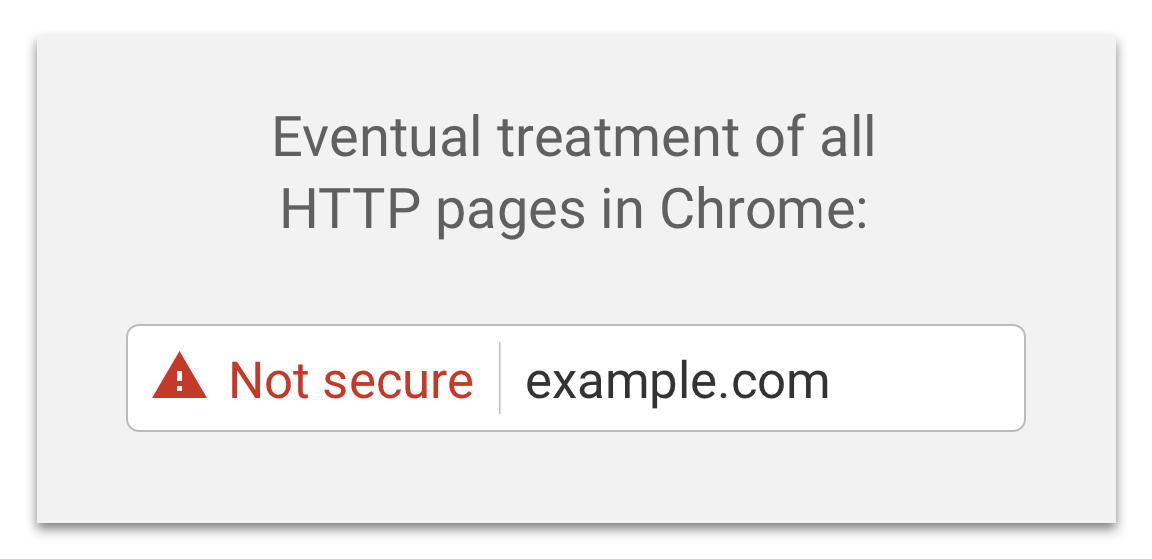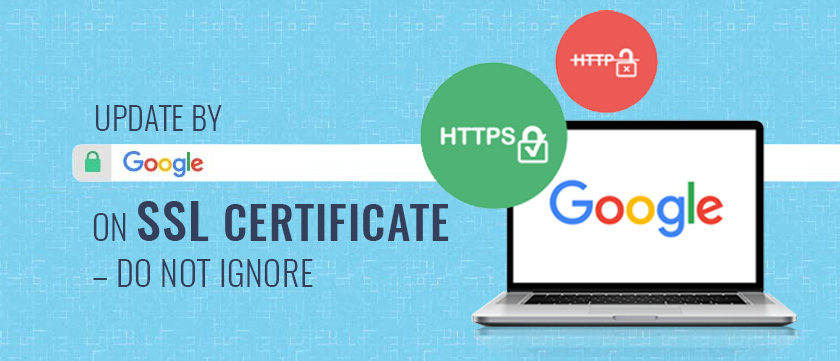Moving Towards Secure Web
Google likes to help people and it keeps finding new ways to make sure we’re safe online. In October 2017, Google suggested that all websites use something called an SSL certificate to be more secure. If a website doesn’t have this certificate, Google will show a warning that says the site is not secure. So, if your website isn’t secure, Google won’t treat it like a friend.
Wondering how to update your websites? Well, here’s the scoop. Web browsers like Chrome want to make sure you can browse the internet safely. They show a little icon in the address bar to let you know if your connection is secure. In the past, Chrome didn’t call out the HTTP extension as not secure. They treated it as a neutral thing. But, just so you know, using HTTP means someone else could peek at or change the website before it gets to you!

Lately, a big chunk of internet traffic has switched to HTTPS which is great news. More and more people are using it. Actually, half of the pages you open on Chrome’s desktop version are now served over HTTPS. Interesting studies also found that users don’t really notice when the “Secure” icon is missing in the address bar, and they tend to ignore warnings that pop up often.
HTTPS encryption is designed to provide you with advantages such as integrity, confidentiality, and identity protection. Your data stays private because your browser and server decrypt the traffic, keeping it safe from prying eyes. Integrity ensures that your information won’t be tampered with without your knowledge or consent. It’s crucial for browsers to recognize the significant difference between casually sharing thoughts or tweets and engaging in browsing activities over the unsecured HTTP mode.
When you intentionally share images, tweets, thoughts, and videos with the world, you’re in control. However, using terms like “lack of encryption” suggests that you might unintentionally expose these controls. There’s a significant difference between someone taking control of your keyboard and just checking out your social media profile.
Benefits of SSL Certificates:
- Data Encryption – It encrypts data during transmission, ensuring that sensitive information like passwords and credit card details cannot be intercepted by hackers.
- User Trust – Websites with this display a padlock icon, indicating a secure connection. This builds trust among users, assuring them that their data is protected.
- Search Engine Ranking – Search engines like Google favor websites with SSL certificates. Having HTTPS in the URL can positively impact your site’s ranking, contributing to better visibility.
- Authentication – It verify the identity of a website, confirming that it is legitimate. This helps users avoid phishing sites and ensures they are interacting with a trusted entity.
- Protection Against Cyberattacks – It protects against various cyber threats, including man-in-the-middle attacks, which can compromise the integrity of data exchanged between a user and a website.
- Compliance with Regulations – Many data protection regulations and standards, such as GDPR, require SSL certificates to safeguard user data. Compliance is crucial for avoiding legal issues.
- Increased Conversion Rates – Users are more likely to engage with and make transactions on websites that display a secure connection. SSL contributes to a positive user experience and higher conversion rates.
- Secured Login Credentials – It ensure that login credentials, such as usernames and passwords, are securely transmitted. This is especially important for websites that require user accounts.
- Protection of Subdomains – Wildcard SSL certificates can secure not only the main domain but also all its subdomains, providing comprehensive protection for an entire website.
- Mobile Compatibility – It supports secure connections on mobile devices, making it safe for users to access websites from smartphones and tablets. This is crucial in today’s mobile-driven online landscape.
When a user notices that an eCommerce website is encrypted, it instills a sense of security. Even amid scandals like NSA listening and other unsettling activities from secret services, the mere existence of encryption provides an added trust factor for the user.
Users ought to have confidence in websites and feel secure while using them, especially during transactions involving credit cards. No one wants to fall prey to inadequate or absent encryption protocols in such situations.
Ending Words
An SSL certificate is a digital security credential that ensures secure communication between a user’s browser and a website’s server. It encrypts data during transmission, safeguarding sensitive information such as login credentials and financial details. SSL certificates enhance user trust, protect against cyber threats, and contribute to improved search engine rankings.



































